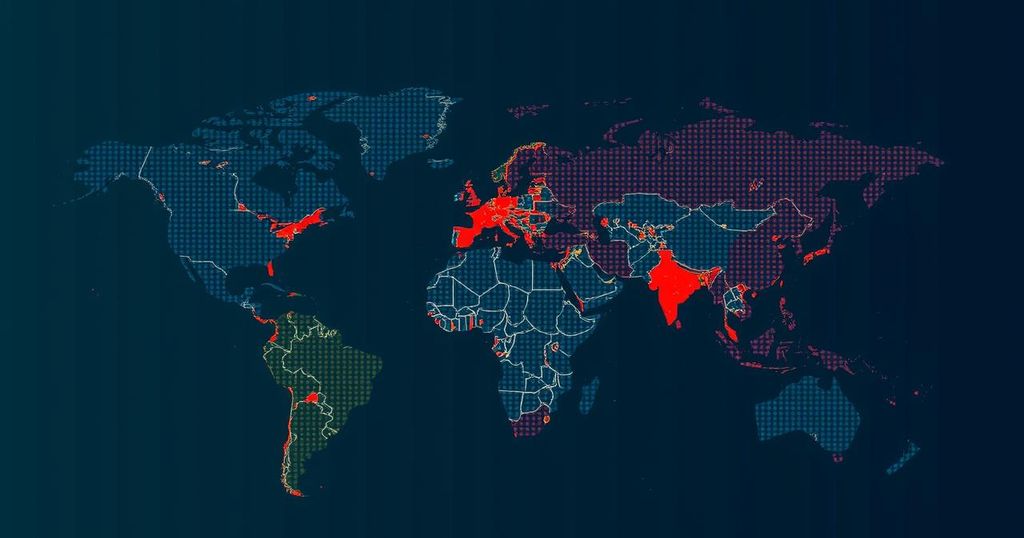World news
ASIA, DIDI KUO, FREEMAN SPOGLI INSTITUTE, FSI, GEOPOLITICS, HAMAS, HEZBOLLAH, INTERNATIONAL RELATIONS, ISRAEL, MARSHALL BURKE, MICHAEL MCFAUL, MIDDLE EAST, NATIONAL SECURITY, NORTH KOREA, OR, ORIANA SKYLAR MASTRO, RUSSIAN INVASION OF UKRAINE, STANFORD UNIVERSITY, WAR, YEMEN
Ethan Kim
0 Comments
Five Key Global Threats Identified by FSI Scholars and Their Implications for the Future
The panel discussion at the Freeman Spogli Institute for International Studies explored pressing global challenges, including the emergence of illiberal forces, the internal erosion of democracy, Ukraine’s resistance against Russian aggression, the sustained influence of China, and progress on climate change. Scholars emphasized the interconnectedness of these issues and the urgent need for strategic action to address them.
In contemporary global discourse, an array of formidable challenges has emerged, encompassing climate change, the decline of democratic principles, escalating tensions with China, ongoing military conflicts in Europe, and escalating strife within the Middle East. A recent panel discussion titled “Global Threats Today: What’s At Stake and What We Can Do About It” featured experts from the Freeman Spogli Institute for International Studies (FSI) at Stanford University, who analyzed the evolving dynamics of these threats and proposed strategic responses. The panel, moderated by Michael McFaul, included insights from scholars Marshall Burke, Didi Kuo, Amichai Magen, Oriana Skylar Mastro, and Steven Pifer. The discourse illuminated several critical themes: 1. Illiberal Forces Gaining Ground: Scholar Amichai Magen emphasized the emergence of a geopolitical coalition termed the “axis of misery,” comprising Russia, Iran, North Korea, and substantial Chinese involvement, which seeks to dismantle the liberal international order. This coalition exemplifies an increasing interconnectedness threatening global stability. 2. Democratic Erosion from Within: Didi Kuo pointed out that threats to democracy are not solely external but are emanating from internal actors who, having attained power through legitimate means, subsequently undermine democratic institutions. Notably, coalitions advocating for democratic values have emerged successfully in various nations, indicating that flexible and adaptive approaches can resist anti-democratic movements. 3. Ukraine’s Fortitude: Steven Pifer addressed the narrative surrounding the Ukraine conflict, asserting that despite perceived losses, Ukraine is determined to prevail. He urged comprehensive support for Ukraine to thwart a potentially emboldened Russia following any form of victory. 4. Persistent Chinese Influence: Oriana Skylar Mastro cautioned against underestimating China’s global ambition, regardless of its economic slowdown. She called for a reevaluation of U.S. strategy toward China, emphasizing the importance of promoting stability in the Asia-Pacific region. 5. Fluctuating Climate Progress: Marshall Burke concluded with insights on climate change, acknowledging recent progress in emissions reductions while asserting the necessity for continued efforts to mitigate and adapt to climate impacts. While U.S. measures have shown promise, global initiatives lag behind, necessitating urgent action. The discussion serves as a clarion call for recognizing the multifarious challenges faced by the international community today, and stresses the urgency of informed action and collaboration to safeguard democratic principles, achieve stable international relations, and address the climate crisis.
The global landscape is increasingly characterized by interlinked threats that challenge the foundations of democracy, international stability, and environmental security. Scholars from the Freeman Spogli Institute for International Studies convened to analyze these threats in detail, presenting a multifaceted view that underscores the importance of an adaptive and proactive approach to governance and international relations. The panel discussion addressed specific geopolitical dynamics, notably the resurgence of illiberal movements, the ongoing conflict in Ukraine, the geopolitical aspirations of China, and the pressing issue of climate change. By drawing on empirical data and historical context, the FSI scholars articulated the complex interplay between these challenges and the necessity of a coordinated response based on democratic values and international cooperation.
The discussions among the scholars from the Freeman Spogli Institute for International Studies highlighted several critical insights into the evolving challenges facing our world. Understanding the interconnected nature of these threats, such as the rise of illiberal regimes, the need for resilience in democratic institutions, the importance of international support for Ukraine, the persistent geopolitical challenge posed by China, and the ongoing efforts to combat climate change is essential. The experts emphasized that while progress has been made, much work remains to be done to navigate these complex issues effectively. Therefore, a collective, informed, and strategic approach is vital for sustaining global order and advancing democratic principles in the face of these mounting threats.
Original Source: fsi.stanford.edu




Post Comment